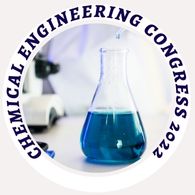Catalysis in Nanotechnology
Nanomaterial-based impetuses are typically heterogeneous impetuses separated into metal nanoparticles to improve the reactant interaction. Metal nanoparticles have a high surface zone, which can increment reactant activity. They are regularly done under quiet conditions to stop the deterioration of the nanoparticles.
As nanoparticles have a high surface-to-volume proportion corresponded to mass materials, they are alluring possibility for use as impetuses. The decrease strategy applied to control the size and the state of the change metal nanoparticles that are created, which are extremely huge in synergist applications.
Nanocatalysis is a rapidly developing field that includes the utilization of nanomaterials as impetuses for a sort of homogeneous and heterogeneous catalysis applications. In homogeneous catalysis, change metal nanoparticles in colloidal arrangements are utilized as impetuses.
Fundamental uses of nanocatalysts in water cleansing, power module, energy stockpiling, composite strong rocket explosives, biodiesel creation, medication, in the color.
- Microscoscopic and spectroscopic characterization
- Nanotubes, nanofibers and nanoparticles
- Nano-Flake Technology
- Carbon nanotechnology
- Green nanotechnology
Related Conference of Catalysis in Nanotechnology
Catalysis in Nanotechnology Conference Speakers
Recommended Sessions
- Biochemical Engineering
- Biomaterials and Biopolymers
- Catalysis and Reaction Engineering
- Catalysis and Zeolites
- Catalysis for Biorefineries
- Catalysis for Chemical Synthesis
- Catalysis for Energy
- Catalysis in Nanotechnology
- Catalytic Materials & Mechanisms
- Catalytic Pyrolysis
- Chemical Engineering in Nanotechnology
- Chemical Kinetics
- Drug discovery and synthesis
- Electrocatalysis
- Environmental Catalysis
- Enzymes, Biocatalysis and Biotransformation
- Fluid dynamics & its Phenomena
- Green and Sustainable Chemistry
- Heterogeneous Catalysis and Homogeneous Catalysis
- Industrial Chemistry
- Molecular Catalysis
- Organocatalysis
- Organometallics and Synthesis
- Petrochemical Engineering
- Photocatalysis
- Plasma Catalysis
- Polymer Chemistry
- Surface Chemistry
Related Journals
Are you interested in
- 3D Printing in Microfluidics - Microfluidics 2026 (Germany)
- AI & Automation in Microfluidic Systems - Microfluidics 2026 (Germany)
- Biomedical Microfluidic Applications - Microfluidics 2026 (Germany)
- Clinical Translation & Commercialization - Microfluidics 2026 (Germany)
- Droplet-Based Microfluidics - Microfluidics 2026 (Germany)
- Lab-on-a-Chip Innovations - Microfluidics 2026 (Germany)
- Microfabrication & Soft Lithography - Microfluidics 2026 (Germany)
- Microfluidic Biosensors & Diagnostics - Microfluidics 2026 (Germany)
- Microfluidic Cell Culture Platforms - Microfluidics 2026 (Germany)
- Microfluidics for Drug Delivery - Microfluidics 2026 (Germany)
- Microreactors & Chemical Processing - Microfluidics 2026 (Germany)
- Nanofluidics & Molecular Transport - Microfluidics 2026 (Germany)
- Organ-on-Chip Engineering - Microfluidics 2026 (Germany)
- Point-of-Care Microdevices - Microfluidics 2026 (Germany)
- Single-Cell Microfluidic Analysis - Microfluidics 2026 (Germany)

